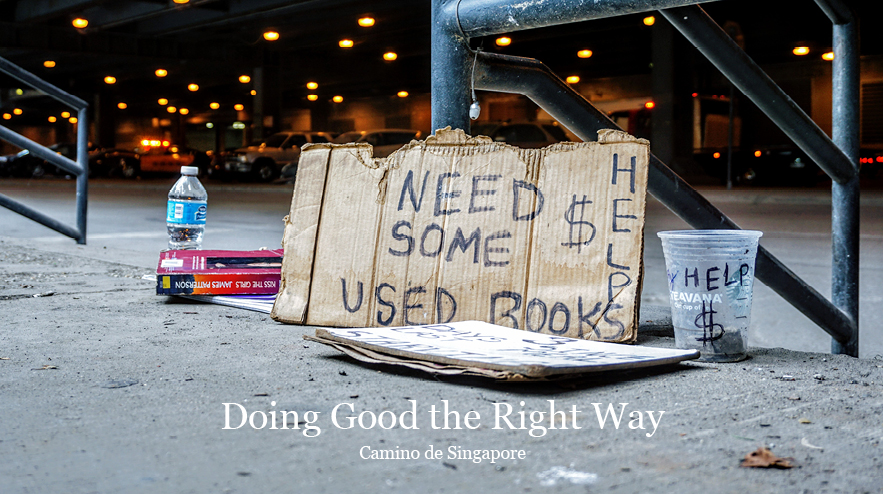No products in the cart.

“A man is asking for money. Can we give it to him?” a colleague asked.
“Wait. Let me speak to him to find out more,” I replied.
My colleague looked uncomfortable at my reply. She added that the man did not have any money and had only asked for a small sum, as though that little bit of information would change my mind. She shared that she could give him the money out of her own pocket.
I smiled, touched by her kindness, and assured her that the man would receive the necessary support if he were in need. To determine that, I would need to ask him more questions to better assess his current situation. This was a familiar conversation, which I have had with different colleagues and friends. Their reactions were the same—that of discomfort.
I understood why they felt that way. The Church teaches us that helping the poor is our duty as Catholics (Catechism of the Catholic Church, 2446). Thus, giving them what they ask seems natural and obligatory; asking questions about their income sources and spending habits appears intrusive and unnecessary.
What some do not realise is that there are better ways of helping. Asking those tough questions helps us to understand and help the person better. Often, giving the poor what they ask for, such as money, only puts a band-aid on the problem; it does not address the root cause of their current predicament.
I had a client who sought additional financial assistance for food and transport, despite receiving financial aid from the government. After conducting an assessment, I found that the client struggled to make ends meet due to unemployment. The long-term solution was to encourage him to find and hold a job.
There are also situations in which giving money could be unintentionally harmful. Going back to my first case example, I found that the man had received cash assistance from a charity the day before but had spent it on drinking. He had also sought and received money from another colleague in the previous week. His social worker advised us not to provide any more cash assistance, and that he was working with the man to secure a job. If we gave more money, we could inadvertently be enabling the man’s drinking habit and reducing his motivation to become self-reliant.
At some point in our lives, we have all encountered a similar situation. How did you respond?
For your next encounter, I invite you to step outside of your comfort zone, to have a chat with the person over a meal—to find out how he is doing and whether he has visited a Social Service Office (SSO) for assistance. If the person has already done so but shares that he requires more aid, you could use the new Help Neighbour feature in the OneService App to alert social service agencies about his situation.
It will be uncomfortable. It will be hard. Doing right usually is.
Social Service Office (SSO)’s hotline number: 1800 222 0000
Click here to visit MSF’s Social Service Offices’ Directory to locate the nearest SSO
Jorain Ng is a daughter, sister, and a Social Worker at Caritas Singapore. She has a habit of randomly sharing her reflections and takeaways from books and articles with her family and friends.
